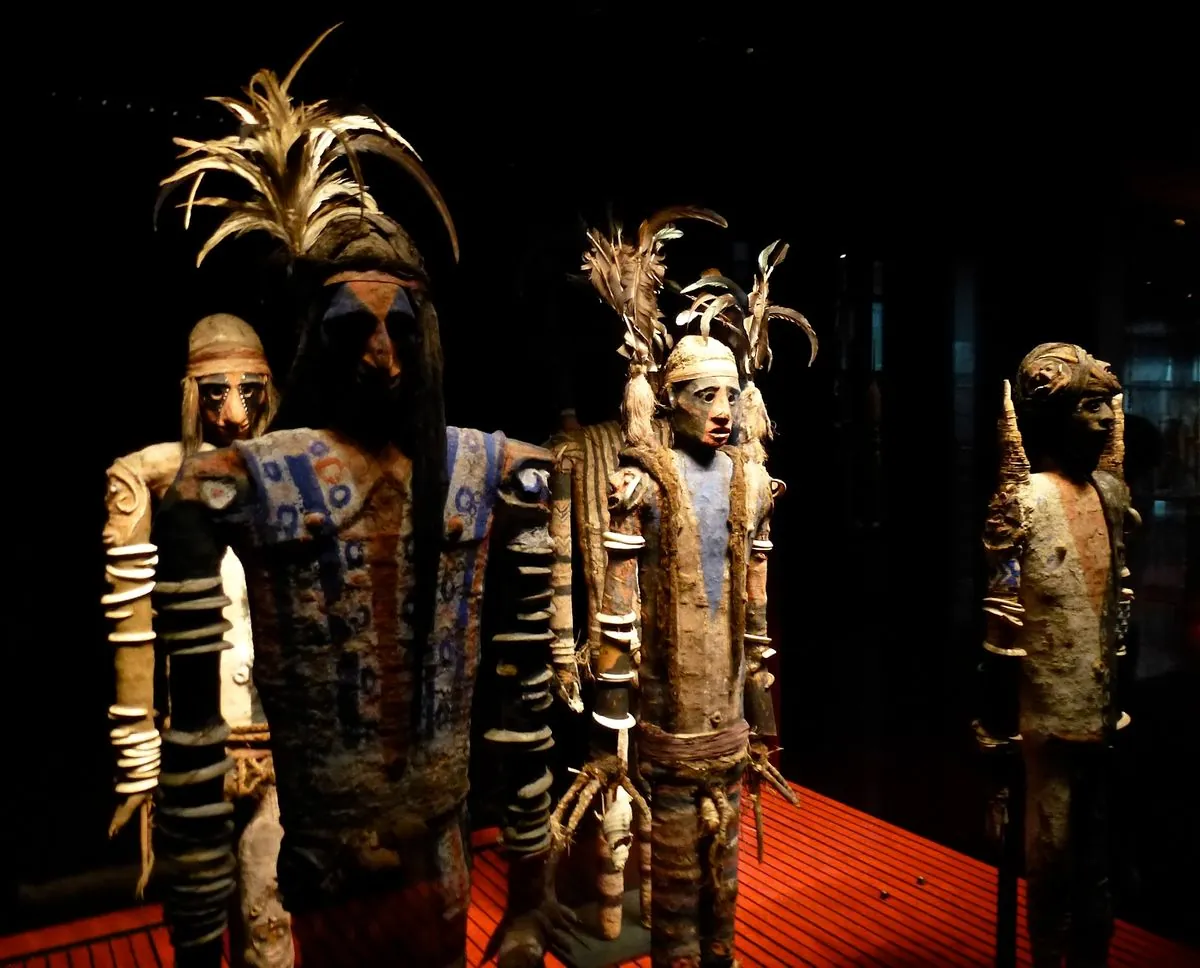FBI Returns Sacred Vanuatu Artifacts in Major Repatriation Effort
The FBI has repatriated five crates of human relics to Vanuatu, including unique rambaramp effigies. This marks the largest return of sacred items to the Pacific island nation, concluding an eight-year investigation.

In a significant cultural repatriation effort, the Federal Bureau of Investigation (FBI) has returned five crates of sacred human relics to Vanuatu, a Pacific island nation. This event marks the culmination of an eight-year investigation and represents the largest repatriation of such items to the country.
The artifacts, which include two skulls and three large effigies known as rambaramp, were unveiled at the Vanuatu Cultural Centre. Kaitip Kami, a curator at the center, immediately recognized the items as belonging to the hill tribes of Malakula, his home island.

The rambaramp effigies, each containing a human skull, are uniquely painted to depict the final stages of a man's life. These sacred objects were likely taken from a men's house in a remote village. In 2016, the FBI seized them from the estate of a deceased New York collector who had amassed approximately 200 sacred items from various indigenous cultures worldwide.
Chris McKeogh, an agent in the FBI's art crimes team, explained the challenges faced during the repatriation process. The largest effigy, measuring 11.5 feet long and weighing 700 pounds, posed significant logistical difficulties due to its extreme fragility.
To assist with the investigation, the FBI enlisted the help of anthropology professor Holly Cusack-McVeigh from Indiana University in 2018. Her team's research, along with assistance from the Museum of New Zealand, played a crucial role in identifying the artifacts' origin.
"Throughout the 18th and 19th centuries, there was a robust trade in human skulls, funerary items (burial objects) and sacred items from cultural groups throughout the Pacific."
The Smol Nambas tribe of Malakula, who created these rambaramp, ceased this practice approximately 50 years ago after converting to Christianity. The tribe's traditional funerary customs involved placing bodies on platforms for up to 50 days before creating the effigies using the skull and other materials.
Kurt Campbell, U.S. Deputy Secretary of State, attended the repatriation ceremony in Port Vila, Vanuatu's capital. He emphasized the United States' respect for cultural heritage and the sanctity of these artifacts.
This repatriation effort highlights the ongoing global challenge of preserving and returning cultural artifacts to their rightful owners. It also underscores the importance of international cooperation in combating the illicit trade of cultural property.
The return of these sacred items holds immense significance for Vanuatu, a nation known for its rich cultural diversity. As Kami expressed, "We are really glad to receive our ancestors - it's a happy moment for us."


































